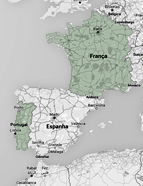

In short, it may be said that the SPHC had an admission policy which, without renouncing its guiding principles, opened the door to new members who, due to their prestige or integration in the teaching and research institutions under the tutelage of the Estado Novo, might have a bearing on the decision to legalize the Society. As Armando Castro hinted to Borges de Macedo in May 1948, "I believe the decision to invite foreign personalities can only be applauded, both because of the importance this represents for the scientific process and also since it will afford the SPHC greater stability".
On the other hand, the absences are also noteworthy, especially that of António Sérgio. This must have been mainly related to his reputation as an oppositionist to the regime, and to the fact that he was also actively and publicly involved in the main political movements that had sprung up around World War II, which might undermine the SPHC's legalization. However, it is also worth noting that while many SPHC founders unmistakably regarded Sérgio as one of the main philosophical and civic influences of their youth, some would come to challenge him on various levels in the late 40s and early 50s. These confrontations were not only related to theoretical and ideological disagreements, brought to light in 1950 in the controversy initiated by António José Saraiva in Vértice (no. 81), but also to different historiographical interpretations (see Borges de Macedo's criticism of him in 1949 regarding the revolution of 1383-85 in the pages of Seara Nova [no. 1119]) and even to divergences over a conception of history that was limited to essayism and pedagogy. This criticism came, in fact, from one of his staunch admirers, Joel Serrão, who at the time (although he would later come to value his influence) excluded him from a genealogy of the great names in contemporary historiography since he had " ended up immobilizing himself in an essayistic and polemic attitude which, however fruitful it may have been, is now, in the eyes of the generation that has entered its thirties, drained of its "pedagogical" virtues.” (Seara Nova, no. 1194-5, Nov.-Dec. 1950, p. 370).
In terms of the research into Portuguese economic history, one of the SPHC's priority areas, Virgínia Rau's absence should also be noted. Interestingly, the Portuguese historian took part in seminars in the mid-1950s organised by the Association pour l'Histoire de la Civilisation in Toulouse, which were also attended by G. Duby, F. Mauro and J. Vicens, among others (Association…, [n.d.]).
